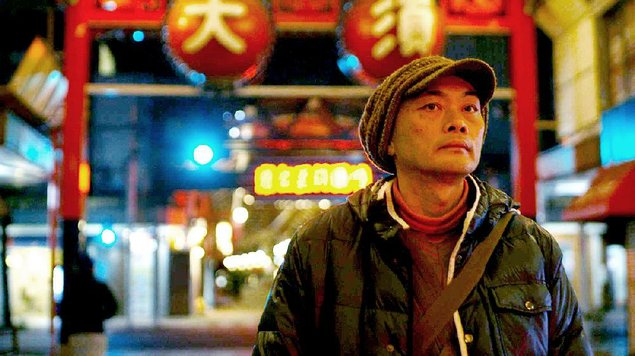Director: Lana Wilson,
Watched on: Kanopy,
Rating: 2.5/5.
In this portrait of an altruistic Japanese priest who counsels lost souls contemplating suicide, director Lana Wilson identifies her two key storylines early and then superficially drifts back and forth between them. The repetition is wearying, the insights thin. For such weighty subject matter, The Departure is a film curiously lacking in substance.
Ittetsu Nemoto conducts rituals in which he asks participants to write down the things they treasure most and then asks them to start throwing these slips of paper away until they are left with only one; one final precious reminder of why their life is worth living. They then crumple up the last slip of paper. This is death, Nemoto says. The absence of everything. The ritual concludes with a quiet simulation of rebirth. It’s a remarkably simple and powerful expression of what makes life worth living. Afterwards, Nemeto remarks on how irrational life is. None of us has a say in being born, yet we are asked to deal with the challenges of living.
Beyond these seminars, the priest visits individuals and responds to their calls, emails, and texts when they feel they are at the end of their ropes. This work takes an obvious toll. He is distracted when at home with his wife, mother, and young son. His health is deteriorating, as seen in visits to a doctor who tells him his arteries are clogged. He drinks too much, smokes, and sometimes parties late into the night with friends (his wife, apparently, is left out of these activities). We learn that Nemoto has already suffered one heart attack.
These scenes are presented schematically, as if the director is fulfilling the obligations of a pre-production outline. We hear Nemeto, in a brief fill-in-the-blanks, off-camera interview, describe his drunk of a father, the friends who killed themselves when he was young, his attempts to understand his inability to say no to the people who demand his help. When he visits his patients (I’m not sure if this is the right term; Nemeto seems to work for free), they recount a litany of hopelessness while the priest offers gentle advice or merely listens and nods. Sometimes he appears to be distracted, but maybe this is part of his appeal. He doesn’t amp their dramas, which is admirable, but as documentary cinema goes, these sequences lack urgency.
In fact, the overriding problem with The Departure is a decided lack of visual, aural, or expositional imagination. There is a much larger story to be told here (Japan’s suicide rate is severe), and many opportunities to expand the story’s cinematic potential. But Wilson keeps her cinematographer’s camera fixed in calm medium shots or rote close-ups, confined to non-descript rooms. Even though she clearly interviewed Nemeto–we can hear his voice-over–she decides to convey information by asking subjects to have awkward conversations they’ve obviously had before. The Departure suffers from a problem afflicting too many overpraised, heavily-funded docs: conventional, simplistic storytelling in which creative risks with the form are all but ignored. This is a dull film, but it didn’t have to be.

